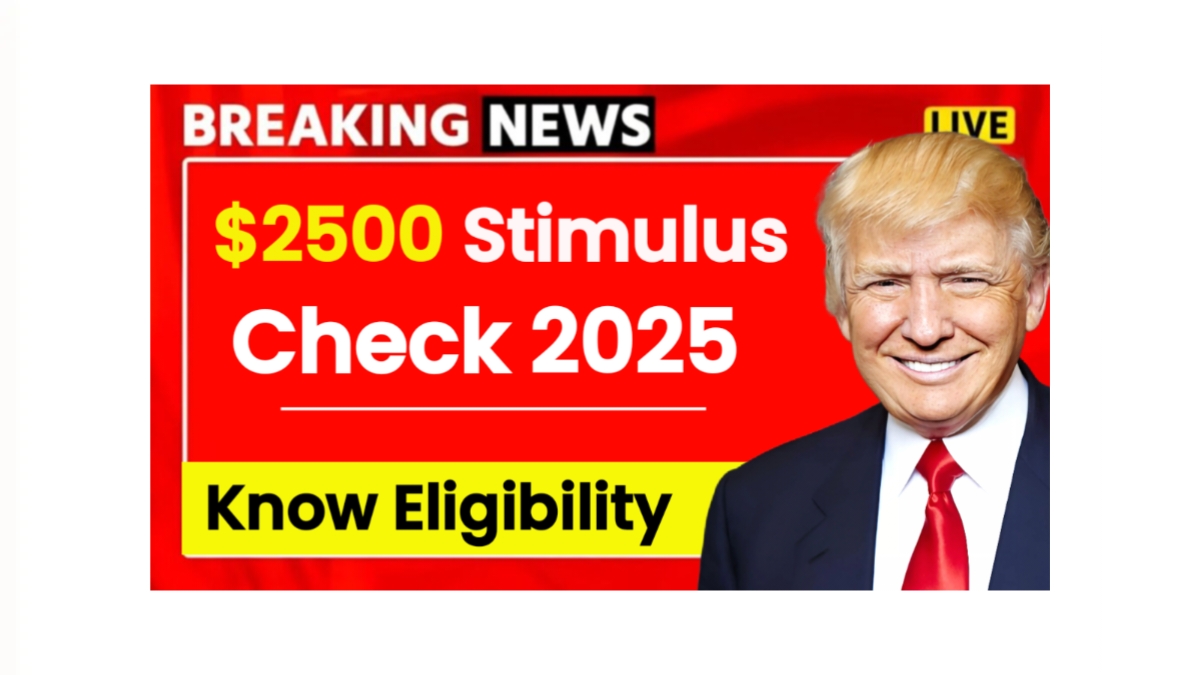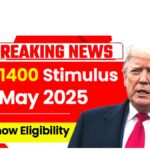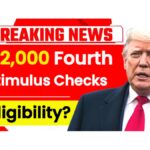$2500 Stimulus Checks 2025: Social media platforms have recently been flooded with claims about a $2,500 stimulus check supposedly coming to Americans in May 2025. As inflation continues to squeeze household budgets and living costs rise, it’s understandable why such news would generate excitement. However, before making financial plans based on these rumors, it’s crucial to separate fact from fiction regarding this alleged relief payment.
No Official Confirmation Exists
Despite the widespread circulation of these claims, no federal legislation has been passed authorizing a $2,500 payment to Americans in 2025. Neither the Internal Revenue Service nor the U.S. Treasury Department has made any announcements about such a program. This is a critical distinction that needs to be emphasized – government financial assistance programs require congressional approval and presidential signature before becoming reality. As of now, no such legislative action has occurred regarding this specific payment.
How Stimulus Check Rumors Develop
These rumors typically originate from a combination of legislative proposals, policy discussions among lawmakers, and online speculation. In this case, some advocacy groups and politicians have indeed suggested financial relief measures to address inflation pressures. However, these discussions represent only potential policy ideas, not enacted programs. The gap between a proposed relief measure and an approved, funded program is substantial and involves multiple legislative hurdles.
Potential Eligibility if Approved
If a stimulus payment were to be approved in the future, it would likely follow patterns established by previous federal relief programs. This typically means income thresholds (such as individuals earning under $75,000 or couples under $150,000), additional amounts for dependents, and inclusion of individuals receiving federal benefits like Social Security. Most government payments also require recent tax filing to establish eligibility and provide payment information. However, since no program currently exists, these criteria remain speculative.
The Dangers of Misinformation
Financial misinformation can cause real harm, particularly to vulnerable populations. Many Americans, especially those on fixed incomes or facing economic hardship, might make budgetary decisions based on the expectation of receiving funds that aren’t coming. Additionally, scammers frequently exploit these situations by creating fake websites or sending phishing emails claiming to help people “register” for nonexistent payments. These scams aim to steal personal information or financial details from unsuspecting victims.
Protecting Yourself from Scams
It’s important to maintain healthy skepticism about financial news shared on social media. The IRS never initiates contact through email, text messages, or social media to request personal or financial information. Any legitimate government payment would be processed automatically based on information the government already has, typically from tax returns. No legitimate program would require payment of fees or submission of banking information through unofficial channels.
Alternative Support Programs
While the $2,500 payment isn’t currently planned, other financial assistance programs do exist. The federal government offers support through tax benefits like the Child Tax Credit and Earned Income Tax Credit. Additionally, some states have implemented their own inflation relief measures or rebates independent of federal action. These programs vary significantly by location and have different eligibility requirements, but they represent actual options rather than rumors.
Staying Informed Through Official Channels
For accurate information about government assistance programs, rely on official sources such as IRS.gov, USA.gov, or your state government’s official website. These sources provide verified information about existing programs, eligibility requirements, and application processes. Should any new stimulus or relief payment be approved in the future, these official channels will be the first to announce details.
While the idea of a $2,500 stimulus check might sound appealing during challenging economic times, no such payment has been authorized for May 2025. Americans should be wary of making financial plans based on unverified social media claims and should instead focus on researching legitimate assistance programs that might benefit their specific situation. By relying on official sources and maintaining a critical eye toward financial news, individuals can better protect themselves from disappointment and potential scams.



